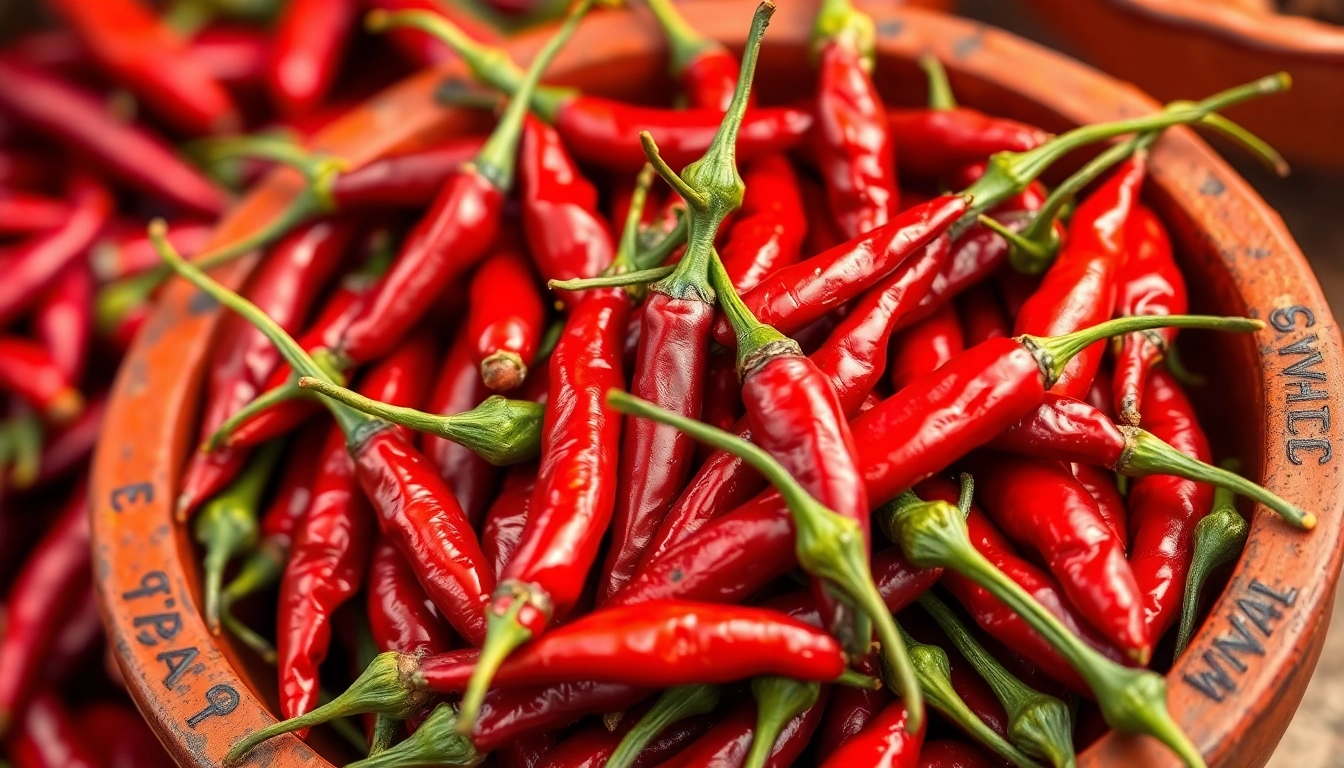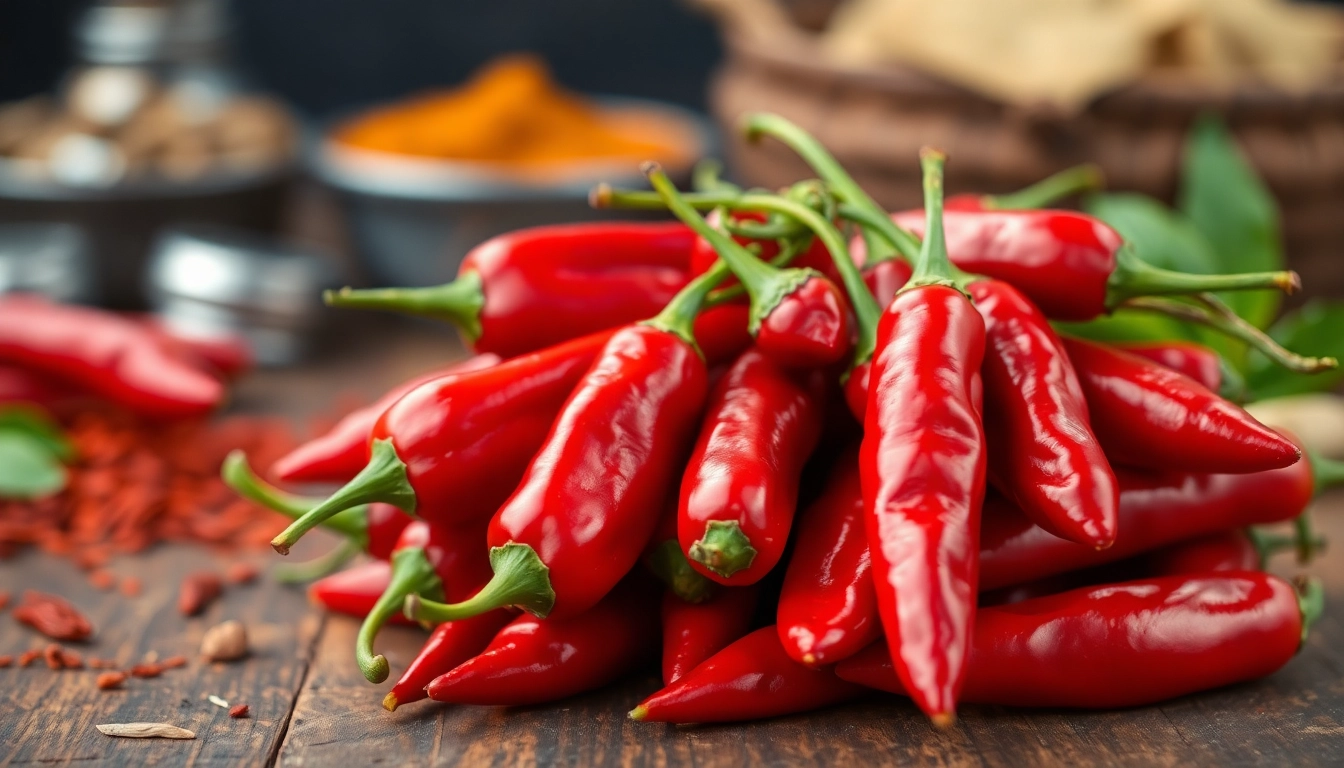
Understanding Chilli Whole: Types, Characteristics, and Quality Indicators
Chilli whole, notably known as Chilli Whole, is a treasured spice that adds depth, heat, and vibrant flavor to cuisines worldwide. Its versatility spans from culinary applications to its use in traditional medicine, making it a staple ingredient for chefs and food manufacturers alike. As a leading manufacturer and exporter of authentic spices, Spice Nest emphasizes the importance of understanding the different types of chilli whole, its quality benchmarks, and how this ingredient can elevate your culinary creations and business offerings.
Popular Varieties of Chilli Whole in the Market
The market hosts a diverse range of chilli whole varieties, each distinguished by their level of heat, color, size, and flavor profile. Some of the most sought-after types include:
- Red Whole Chilies: Known for their bright color and moderate heat, these chilies are widely used in both culinary and export markets. Varieties such as Kashmiri reds give dishes a vibrant hue and smoky flavor.
- Bird’s Eye Chillies: Small in size but intensely hot, these are popular in Southeast Asian cuisines. Their fiery nature makes them ideal for chili powders, sauces, and spicy condiments.
- Guntur Saanam Chillies: Originating from India’s Guntur region, these chilies boast a robust pungency and are favored for their size and heat level, making them a preferred choice for spice blends and commercial processing.
- California Wonder: Although primarily known as a capsicum, select varieties of California chilies are also sold as whole green chilies for specific regional dishes.
Each variety is cultivated with specific climatic and soil conditions to optimize flavor and heat, and selecting the right type depends on your target culinary application or export market requirements.
Selecting Fresh and High-Quality Chilli Whole
Quality assurance begins with selecting the freshest, most vibrant chili whole. Key indicators of high-quality chillies include:
- Color: Bright, deep red or green, depending on the variety, signals freshness and proper ripeness.
- Texture: Firm, smooth, and free from wrinkles, cracks, or blemishes, indicating good handling and storage.
- Size and Shape: Uniformity in size and shape ensures consistent processing and flavor extraction.
- Aroma: Fresh chillies emit a strong, pungent aroma—an indicator of good quality.
For bulk buyers or food manufacturers, sourcing from certified reputable suppliers like Spice Nest ensures consistency in product quality and adherence to food safety standards. Always insist on traceability, certifications, and samples before large-scale procurement.
Key Features That Define Premium Chilli Whole
Premium chilli whole stands out by several distinctive features that ensure superior flavor, safety, and shelf life. These include:
- High Pungency Levels: A hallmark of quality chillies, indicative of rich capsaicin content which contributes to heat and flavor.
- Consistent Color and Size: Uniformity enhances processing efficiency and visual appeal in finished products.
- Low Moisture Content: Adequate dehydration prevents mold growth, ensuring longer shelf life and flavor retention.
- Absence of Foreign Particles and Damage: Clean, intact chillies without insect damage or foreign matter reflect good harvesting and handling practices.
Adherence to international quality standards like HACCP, ISO, and Organic certifications further qualificies the premium status of the product, making it suitable for export and high-end markets.
Benefits and Culinary Uses of Chilli Whole in Different Cuisines
Enhancing Flavor Profiles with Chilli Whole
Chilli whole imparts a complex heat and depth to dishes, often serving as the cornerstone ingredient in spice blends, marinades, and pickles. Its essential oils and capsaicin profile enhance flavor layers, making it indispensable in both traditional and contemporary recipes.
Traditional and Modern Recipes Using Chilli Whole
In traditional Indian cuisine, whole chilies are used in tempering for curries, pickles, and chutneys, providing a balanced heat and aroma. Modern culinary innovations incorporate chili whole in sauces, dry rubs, and fusion dishes, appealing to global palates. For example, spicy curry powders, chili-infused oils, and snack seasonings rely heavily on Punjabi, Szechuan, or Mexican-style whole chilies.
Health Benefits and Nutritional Value of Chilli Whole
Beyond its culinary appeal, chili whole offers notable health benefits. Its capsaicin compound is linked to metabolism boosting, pain relief, and anti-inflammatory properties. Rich in vitamins A, C, and antioxidants, regular consumption can support immunity and overall wellness.
Best Practices for Storing and Preserving Chilli Whole
Optimal Storage Conditions to Maintain Freshness
To preserve the integrity of chili whole, store in cool, dry, and well-ventilated environments—preferably at temperatures below 25°C with low humidity. Airtight containers or food-grade plastic pouches prevent moisture ingress and contaminations. Using desiccants or oxygen absorbers can further enhance shelf life.
Longevity and Shelf Life Tips
Under ideal conditions, high-quality chili whole can last for up to 12 months, maintaining flavor and pungency. Regular checks for signs of spoilage, such as discoloration or mold, are essential. Roasting or smoking chilies before storage can add flavor and extend shelf life for specific applications.
Preventing Common Storage Issues
Common challenges include moisture absorption leading to mold and insect infestation. Proper hygienic handling, airtight packaging, and regular inspection are critical in preventing such issues. In addition, avoiding exposure to direct sunlight and keeping products away from pests ensures long-term quality.
Incorporating Chilli Whole into Your Business and Export Strategies
Packaging and Branding for Export Markets
Effective packaging is vital for maintaining freshness during transit and appealing to international buyers. Use moisture-proof, oxygen-impermeable materials with clear labeling including product origin, certifications, and usage instructions. Branding that emphasizes authenticity and quality can enhance consumer trust, especially when exporting to health-conscious or premium markets.
Meeting Certification and Quality Standards
Export of chili whole requires compliance with standards such as ISO, HACCP, and organic certifications where applicable. Ensuring traceability, pesticide residue testing, and adherence to permissible limits boost export credibility and market acceptance.
Market Trends and Consumer Preferences
Global demand for organic, non-GMO, and sustainably sourced chillies is rising. Moreover, consumers seek spicy flavor profiles with clean labels. Adapting sourcing and processing to meet these preferences, backed by transparent documentation and certifications, positions your business favorably in competitive markets.
Buying Guide: How to Choose Reliable Suppliers of Chilli Whole
Evaluating Supplier Credibility and Certifications
Choosing a supplier like Spice Nest ensures product reliability, backed by certifications and extensive experience in international trade. Verify their compliance with food safety standards, quality assurance processes, and track record of timely delivery.
Cost Considerations Without Compromising Quality
While competitive pricing is essential, prioritize quality and consistency. Bulk purchasing from established manufacturers with scalable quality control measures can optimize costs without sacrificing standards.
Building Long-term Business Relationships
Trust and transparency cultivate long-term partnerships. Regular communication, transparency in sourcing, and consistent quality delivery foster loyalty and open avenues for innovation and market expansion.






